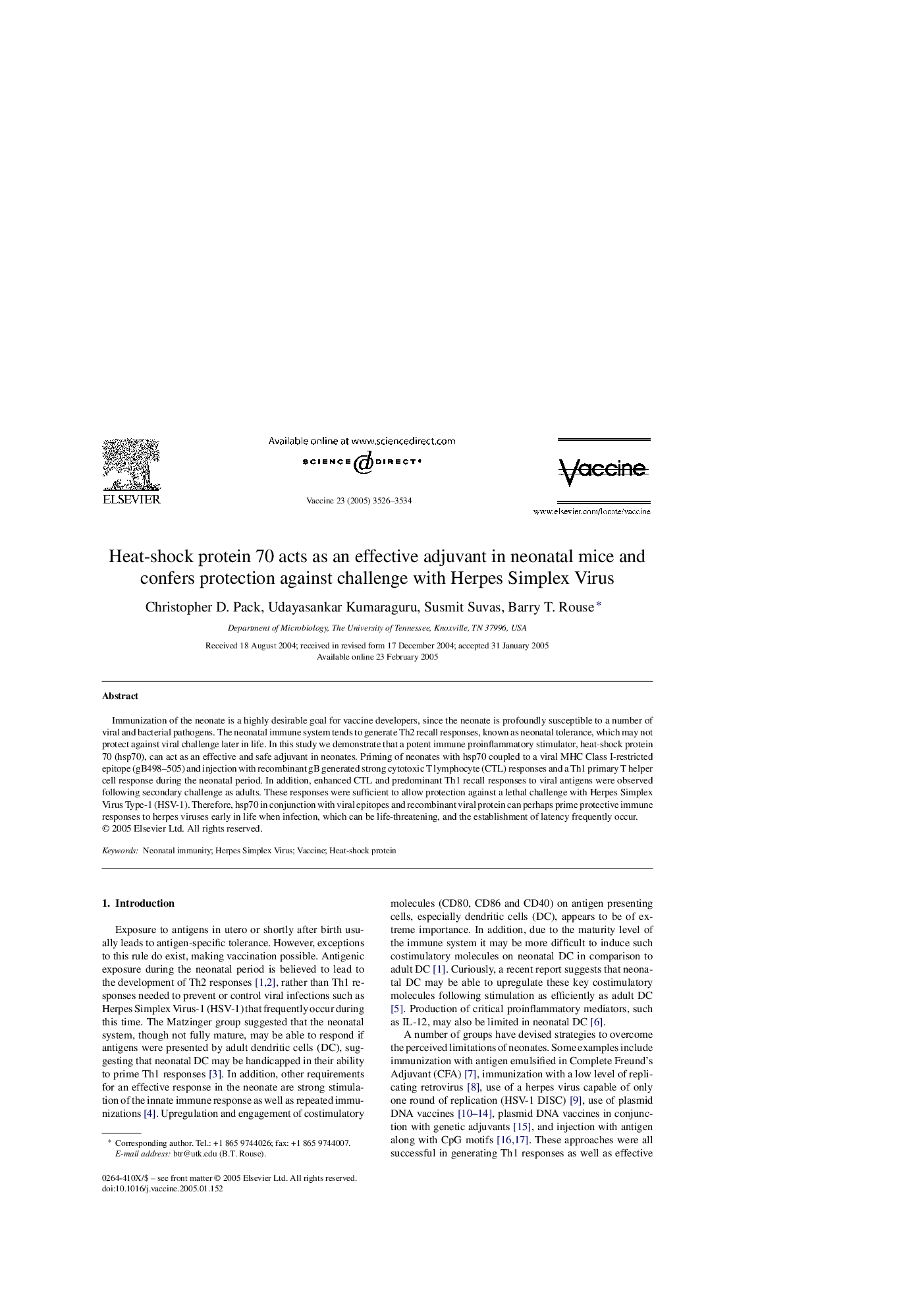| Article ID | Journal | Published Year | Pages | File Type |
|---|---|---|---|---|
| 2410808 | Vaccine | 2005 | 9 Pages |
Abstract
Immunization of the neonate is a highly desirable goal for vaccine developers, since the neonate is profoundly susceptible to a number of viral and bacterial pathogens. The neonatal immune system tends to generate Th2 recall responses, known as neonatal tolerance, which may not protect against viral challenge later in life. In this study we demonstrate that a potent immune proinflammatory stimulator, heat-shock protein 70 (hsp70), can act as an effective and safe adjuvant in neonates. Priming of neonates with hsp70 coupled to a viral MHC Class I-restricted epitope (gB498-505) and injection with recombinant gB generated strong cytotoxic T lymphocyte (CTL) responses and a Th1 primary T helper cell response during the neonatal period. In addition, enhanced CTL and predominant Th1 recall responses to viral antigens were observed following secondary challenge as adults. These responses were sufficient to allow protection against a lethal challenge with Herpes Simplex Virus Type-1 (HSV-1). Therefore, hsp70 in conjunction with viral epitopes and recombinant viral protein can perhaps prime protective immune responses to herpes viruses early in life when infection, which can be life-threatening, and the establishment of latency frequently occur.
Related Topics
Life Sciences
Immunology and Microbiology
Immunology
Authors
Christopher D. Pack, Udayasankar Kumaraguru, Susmit Suvas, Barry T. Rouse,
